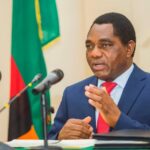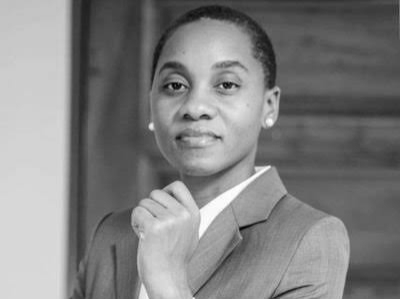Chansa Kabwela is a Zambian journalist and activist known for her courage in standing up for press freedom, women’s rights, and social justice. Her activism, particularly in the face of governmental opposition, has made her a prominent figure in Zambia and beyond. Here are 20 key things to know about Chansa Kabwela:
- Early Life and Education: Born in Zambia, Chansa Kabwela grew up with a passion for justice and a commitment to truth. She pursued education in journalism to amplify the voices of those who often go unheard.
- Career in Journalism: Kabwela began her career as a journalist, quickly earning a reputation for her commitment to investigative reporting and her focus on human rights issues, especially those affecting women and children.
- Editor at The Post: She rose to prominence while working as an editor at The Post, Zambia’s leading independent newspaper. The publication was known for its critical stance on government policies and its focus on investigative journalism.
- Advocate for Press Freedom: Kabwela became a symbol of press freedom in Zambia, advocating for the rights of journalists to report without fear of persecution. Her work at The Post often put her at odds with the government.
- The 2009 Photo Controversy: Kabwela gained international attention in 2009 when she sent distressing photos to the Ministry of Health and other organizations, depicting a woman giving birth in a hospital parking lot during a health workers’ strike. The images highlighted the dire healthcare crisis in Zambia.
- Legal Battle: Rather than addressing the healthcare crisis, the Zambian government charged Kabwela with distributing obscene material. The legal battle that followed attracted global attention and put Kabwela in the spotlight as a defender of free speech.
- Acquittal: In 2009, Kabwela was acquitted of all charges, a victory for press freedom and human rights advocacy in Zambia. The court ruled that the images were not intended for public consumption but rather to prompt action on the healthcare crisis.
- International Support: Kabwela received widespread support from international human rights organizations, including Amnesty International, which called for the charges against her to be dropped and praised her for exposing the healthcare crisis.
- Women’s Rights Activism: The 2009 case also shone a light on Kabwela’s dedication to women’s rights. She has been a strong advocate for maternal health and reproductive rights in Zambia, often speaking out about the challenges women face in accessing healthcare.
- Feminist Icon: Kabwela is considered a feminist icon in Zambia, using her platform to challenge patriarchal structures, fight for gender equality, and demand better policies for women’s empowerment.
- Press Freedom Advocate: Beyond her own legal challenges, Kabwela has consistently advocated for press freedom across Africa, calling for greater protection of journalists and freedom of expression.
- Post-Newspaper Career: After the closure of The Post in 2016 due to its conflicts with the Zambian government, Kabwela remained active in public life, continuing to champion the causes she cared about through writing, public speaking, and activism.
- Advocacy for Health Rights: Kabwela’s activism has extended to improving healthcare systems in Zambia, with a specific focus on maternal health, public health crises, and the need for government accountability.
- Human Rights Defender: Kabwela’s work as a journalist and activist has earned her recognition as a defender of human rights. She has spoken at various international forums on the importance of defending press freedom and women’s rights.
- Recognition and Awards: Kabwela has received numerous awards for her courageous journalism and activism, including recognition from international organizations advocating for press freedom and human rights.
- Impact on Zambian Media: Her legal battle and the subsequent closure of The Post marked a turning point in Zambia’s media landscape, raising awareness of the challenges facing independent journalism in the country.
- Public Speaking: Kabwela has been a sought-after speaker at global conferences and forums where she discusses press freedom, women’s rights, and the role of the media in holding governments accountable.
- Inspirational Figure: For many young journalists and activists in Zambia and beyond, Chansa Kabwela serves as a role model for standing firm in the face of government repression and using journalism as a tool for social change.
- Continued Activism: Even after stepping away from daily journalism, Kabwela continues to engage in activism, particularly focusing on issues that affect women, children, and marginalized communities.
- Legacy of Courage: Chansa Kabwela’s courage in the face of persecution, her advocacy for women’s rights, and her tireless fight for press freedom have cemented her legacy as one of Zambia’s most influential journalists and activists.
Chansa Kabwela’s career reflects the power of journalism and activism to drive social change, even in the most challenging environments. Her legacy continues to inspire those fighting for press freedom and human rights across the world.






